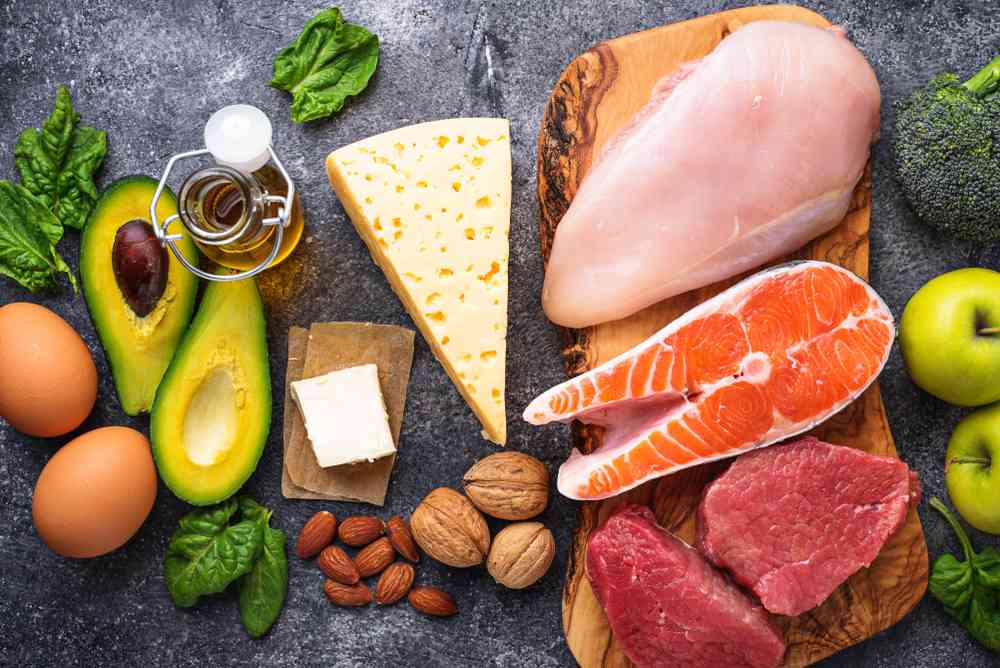
EVERY health programme includes a diet component and perhaps you find this to be very bothersome and uninteresting since you may feel that you cannot afford an expensive diet and lifestyle or you have tried but failed.
A healthy diet is more about your attitude than it is about the money.
Finding solutions to keep a healthy diet in terms of finances would be simpler for you if you are highly informed and have an optimistic outlook.
It is important to remember that diet has an impact on every part of your body, including your mouth.
The mouth serves as both a gateway and a mirror to your body’s health, as I have stated in previous writings.
A healthy diet should not be taken for granted when it comes to dental health because vitality of periodontal tissues (tissues that surround and support the teeth) depends heavily on necessary nutrients in both health and disease.
In addition to providing satiety, a healthy diet is essential for maintaining good and satisfying oral health.
By making good dietary decisions and investments, you can walk with confidence, cut down on medical visits and save money that could have been gobbled by hospital bills.
- New perspectives: Zim govt has to find balance between economy and politics
- 9 000 farmer field schools on cards
- Desert Jewels outshine the Gems
- Gwanda residents apprehend robbers
Keep Reading
In discussing the role of diet in periodontal disease, there are two main issues:
- The effect of diet on periodontal disease.
- The effect of tooth loss, which can impair chewing ability, leading to dietary intake changes.
The effect of diet on periodontal disease
A solid and fibrous diet consisting of fruits, vegetables, herbs, legumes and cereals (apples, guavas, broccoli, carrots, cowpeas (nyemba), roundnuts (nyimo), parsley, rosemary, brown rice, maputi, etc) is more advantageous than consuming soft, loosely textured foods when it comes to fostering and preserving gingival and periodontal health (gums).
More plaque deposits are often found in soft diets and this is particularly true when the soft diet includes a large amount of sugar.
High-fibre diets are regarded beneficial because they can naturally cleanse teeth, gums and the tissues that support them.
However, moderation should be maintained since a highly coarse and granular diet requires strong mastication, hence putting the supporting tissues at risk of direct harm.
The organic part of every tooth tissue, including the bone surrounding the tooth, contain proteins.
Proteins are also necessary for the supporting structures of the gum to remain intact (an amino acid).
Without proteins, severe pathologic alterations take place and there is significant periodontal support degradation.
Vitamins and periodontal disease
Vitamins are vital, physiologically active dietary components that cannot be substituted with other foods.
People who lack vitamin C develop scurvy, a condition marked by haemorrhagic diathesis (a group of diseases that are characterised by an increased tendency of the body to bleeding and haemorrhage) and slowed wound healing.
Depletion of vitamin C may interfere with the ecologic equilibrium of bacteria in plaque and increases its pathogenicity.
Signs and symptoms
A higher vulnerability to infection, poor wound healing, gum swelling and bleeding teeth that move.
Foods high in vitamin C are citrus fruits, namely oranges, lemons, pomelos, nartjies, lime, grapefruit, etc.
Vitamin D deficiency
Vitamin D is essential for the absorption of calcium from the gastrointestinal tract and the maintenance of calcium-phosphorus balance.
The dentist can observe through an xray reduced density of supporting bone.
The main source of Vitamin D is the sun, kudziya mushana kwakanaka (sunbathing is good for your body).
Vitamin E
It acts as an antioxidant (substance which prevents or delays cell damage) and plays an important role in maintaining the stability of cell membranes and protecting blood cells against destruction (haemolysis).
Vitamin E sources are spinach, avocado, mangoes and tomatoes.
Vitamin A
It is essential for growth, differentiation and maintenance of soft tissues and for bone growth and the development of the child during pregnancy.
Thus, for one to have a well-developed alveolar bone that supports the teeth one needs to consume sufficient amounts of vitamin A.
Vitamin A can be obtained from foods such as carrots, sweet potatoes, red bell peppers, etc.
Vitamin B-Complex
Oral disease is rarely due to a deficiency in just one component of the B-complex group.
Oral changes common to vitamin B-complex deficiencies are gingivitis, glossitis (inflammation of the tongue) and inflammation of all the soft tissues of the mouth.
Vitamin B is found in sources such as meat (especially liver), seafood, poultry, eggs and some fortified foods such as breakfast cereal and nutritional yeast.
There is evidence that obesity, as well as calcium and vitamin C deficiency, contribute to the risk for periodontal disease.
There are well-known benefits of adequate dietary calcium and weight control as part of the overall health of the individual.
Therefore, the following recommendations made for the management of diet in adult dental patients:
- Reduced intake of refined sugars, especially those who have gingival recession (the reduction of the gum size exposing the root of the tooth) and are prone to caries/tooth decay.
This is also important in those who suffer from xerostomia (dry mouth) associated with smoking or medications that reduce salivary flow.
- Proper intake of calcium. If dietary calcium is not adequate in case of other disorders that can cause difficulties in some calcium absorption patients they might need to take supplements.
- Weight reduction through exercise and a calorie deficient diet for those who are overweight or obese, since obesity, is a risk factor for periodontal disease (gum disease).
Weight reduction may improve periodontal health (gum health) and it will clearly decrease the risk for several other chronic diseases such as diabetes and cardiovascular disease and hence will contribute to a good overall health.
- People should include adequate fibre in the diet from fruits, vegetables and whole grains.
The effect of tooth loss can impair chewing ability, leading to dietary intake changes.
Dietary intake is impacted by adult tooth loss, particularly if teeth are not sufficiently replaced.
For instance, cutting back on hard-to-chew meals like carrots, leaf salads, whole grains, fruits and veggies can be consequences of tooth loss.
Loss of teeth is linked to an overall decrease in fibre intake as well as an increase in consumption of refined sugar and fats.
It is unclear to what degree proper dentures or implants enhance chewing and regulate eating.
Denture users will, however, eat a diet comparable to that of those with normal teeth provided they are properly instructed on dietary requirements.
Since teeth are valuable assets that only you can possess and cannot give away, I suggest exploring other treatment alternatives before thinking about having your teeth extracted.
It goes without saying that you should pay attention to what you eat and your personal dental hygiene regimen as well.
Patience Matambo is a final year BSc Dental Surgery student at the People’s Friendship University of Russia. She can be reached at [email protected]









